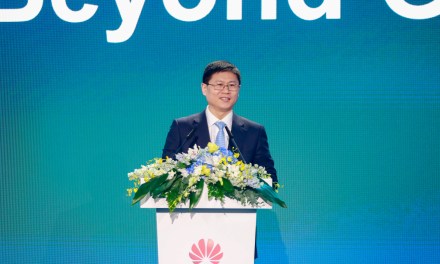INTERVIEW
We recently had the pleasure of catching up with Alexander Rabe, CEO, eco – Association of the Internet Industry ahead of our upcoming event Connected Germany which is being held in Mainz on December 6-7 2022.

Alexander Rabe, Managing Director, eco – Association of the Internet Industry
- Can you introduce yourself and your current role?
My name is Alexander Rabe and I’m the Managing Director at eco – Association of the Internet Industry. With over 1,000 member companies, we have been instrumental in shaping the framework conditions for an efficient and trustworthy digital ecosystem since 1995. In 2018, the Alliance for the Strengthening of Digital Infrastructures in Germany was also founded under the association’s umbrella. I see this as a very important initiative, given that – together with the stakeholders of this digital infrastructure ecosystem – we have already been able to significantly raise awareness of the role of digital infrastructures among policymakers and the public in recent years. Our focus here and now is on the positive effects of digitalisation for Germany as a business location, side-by-side with the topic of sustainability.
- How has Germany’s digitalisation journey progressed?
The importance of digitalisation has come more and more into focus in Germany over the past few years. This became particularly clear during the Covid-19 pandemic, when digital infrastructures essentially kept our entire working and social life up and running. At the same time, however, the biggest digital policy challenges also came to the fore. Unfortunately, we still have a long way to go to achieve the digital awakening currently envisaged by the German federal government (comprised of the SPD/the Greens/the FDP) in its coalition agreement. Our latest Civey survey revealed that 71 per cent of Germans are dissatisfied with the current digital policy. What we need is a digital policy with a long-term perspective that does not capitulate to the department principle and that at the same time can react quickly to acute crises and challenges – such as the energy crisis and the climate crises.
- What impact can digitalisation have on helping Germany to achieve its sustainability targets?
Digital services and technologies offer many innovative solutions for a more sustainable future. To take the utilisation of waste heat from data centres as an example: In purely calculated terms, in Frankfurt – the location of more than 60 data centres and the world’s largest Internet Exchange – all residential and office spaces could receive a climate-neutral heat supply by 2030 through waste heat utilisation.
In other cities, if we want to save CO2 and energy costs, the waste heat utilisation of data centres will definitely be among the top solutions in the coming years. But here, too, the political framework conditions must be appropriate: Approval procedures must be substantially streamlined and the CO2-free waste heat must be fed into the local and district heating network to a greater extent than it has been to date.
And there are many more examples, studies and research projects that underline how digitalisation is part of the solution to achieve the climate goals in Germany. To showcase this range of examples, this year we launched the #JOINTHESOLUTION campaign.
- What are you most looking forward to at Connected Germany?
I am looking forward to meeting and interacting with key decision-makers of the digital infrastructure provider ecosystem. Connected Germany offers a suitable platform for the entire industry. Without a doubt, the event also shows that functioning networks are every bit as important as high-performance data centres for advancing Germany as a business location.
You can hear from Alexander and the rest of our amazing speaker lineup at this year’s Connected Germany – follow the link to secure your place!


















